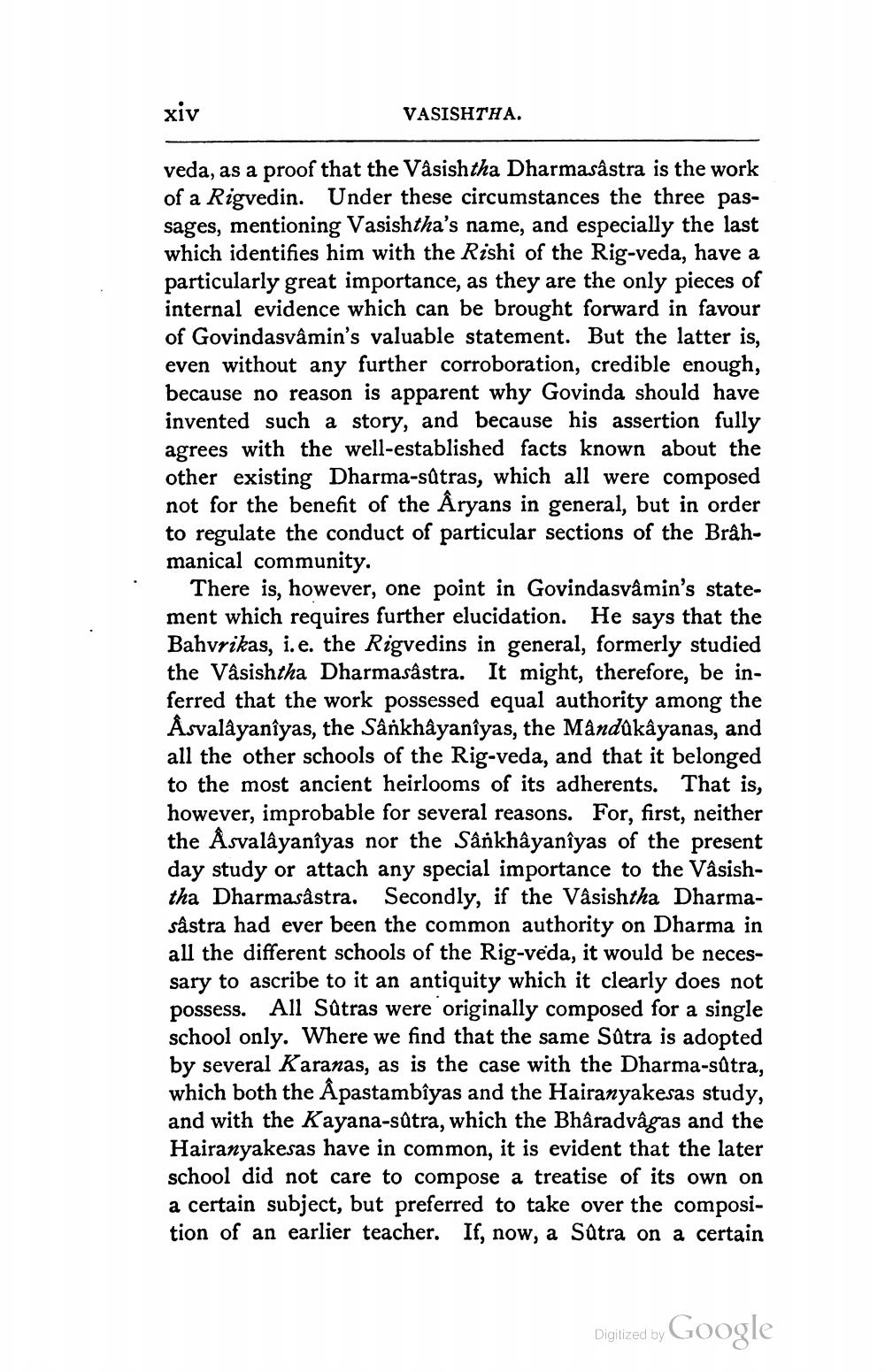________________
xiv
VASISHTHA.
veda, as a proof that the Vâsishtha Dharmasastra is the work of a Rigvedin. Under these circumstances the three passages, mentioning Vasishtha's name, and especially the last which identifies him with the Rishi of the Rig-veda, have a particularly great importance, as they are the only pieces of internal evidence which can be brought forward in favour of Govindasvâmin's valuable statement. But the latter is, even without any further corroboration, credible enough, because no reason is apparent why Govinda should have invented such a story, and because his assertion fully agrees with the well-established facts known about the other existing Dharma-sútras, which all were composed not for the benefit of the Aryans in general, but in order to regulate the conduct of particular sections of the Brâhmanical community.
There is, however, one point in Govindasvâmin's statement which requires further elucidation. He says that the Bahvrikas, i.e. the Rigvedins in general, formerly studied the Vâsishtha Dharmasâstra. It might, therefore, be inferred that the work possessed equal authority among the Åsvalayanîyas, the Sankhayanîyas, the Mandukâyanas, and all the other schools of the Rig-veda, and that it belonged to the most ancient heirlooms of its adherents. That is, however, improbable for several reasons. For, first, neither the Åsvalâyanîyas nor the Sânkhâyanîyas of the present day study or attach any special importance to the Vâsishtha Dharmasastra. Secondly, if the Vâsishtha Dharmasastra had ever been the common authority on Dharma in all the different schools of the Rig-veda, it would be necessary to ascribe to it an antiquity which it clearly does not possess. All Sûtras were originally composed for a single school only. Where we find that the same Satra is adopted by several Karanas, as is the case with the Dharma-sútra, which both the Âpastambîyas and the Hairanyakesas study, and with the Kayana-sútra, which the Bhâradvâgas and the Hairanyakesas have in common, it is evident that the later school did not care to compose a treatise of its own on a certain subject, but preferred to take over the composition of an earlier teacher. If, now, a Satra on a certain
Digitized by Google




